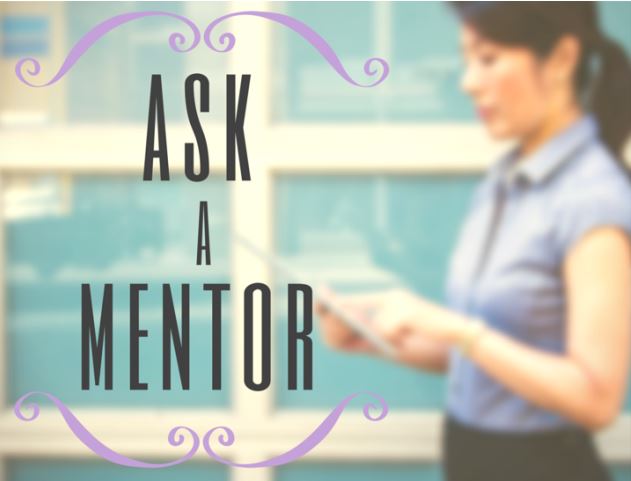Compiled and edited by Julie Tereshchuk.
Got your own career conundrum you’d like advice on?
Then sign up for the WCA mentor program. It’s free to members!
[Editor’s note: this month we’ve got a two-fer, with similar questions from a student communicator and her more seasoned counterpart.]
“Dear Mentors: I’m in my 40s and have a lot of diverse experiences. Now I want to pivot my career and am redoing my resume and elevator speech. How do I know what to leave out? It’s difficult to include everything. Yours, Ms. Fortysomething.”
“Dear Mentors: I’m a recent graduate and need help polishing my interview skills and updating my resume. How do I add the skills I learned during my internship to my resume? Yours, Ms. NewGrad.”
Dear Ms. Fortysomething,
Think strategy! Before you redo your resume and your elevator speech, you need to step back and decide what it is you’d like to/want to do. What does your ideal job look like (title, responsibilities, skills and requirements); in which sectors would you like to work (health, beauty, outdoors, etc.); type and size of company or organization; service or product oriented; where do you want to be located and what excites you (the passion factor). Without focusing your search, the tools you use (your resume etc.) won’t communicate or focus on what you’re seeking. It’s like creating a website before the organization has defined its strategic direction, positioning and branding.
Dear Ms. NewGrad,
It depends. First decide if this is a targeted resume for a specific job, or is it a general resume to form the basis for your job search. If the latter, go back to the original intern job description and pull out the key skills that you will highlight as you go forward. If it’s a targeted resume, look at the job description and the skills they are asking for, then make sure you address them in your resume by referencing your past experiences.
Yours, Jane Baxter Lynn
Dear Ms. Fortysomething,
You said you want to change career directions. My advice would be to first get clear about what you’d like to do. What are the particular skills and experience needed for the new position you’re seeking? Tailor your pitch and resume to highlight those skills and experience. Your goal is to get an interview. Then you can go into more detail about your diverse background.
Dear Ms. NewGrad,
My simple answer would be to list the internship just like any other job. Detail the title, duties and time spent.
Yours, Liz Carmack
Dear Ms. NewGrad,
Because you are in the communications field, the skills you learned in your internship likely include honing your writing and editing skills. But that’s not all you learned. Importantly, you also learned a lot about internal communications—learning to communicate effectively with your manager and with your colleagues—which is something you cannot learn in school. Make sure you add that to your resume.
And be specific when adding your writing and editing skills to your resume. For example, “I wrote articles for several publications, including a quarterly newsletter and annual report. The newsletter was mailed to 12,000 donors and the annual report will be mailed to 7,000 donors.” It’s best if you put your work in context by including the audience (donors) and showing the number of people who will likely be reading your writing. This should help you give an accurate picture of your work. Best of luck to you!
Yours, Margaret Barry
Dear Ms. Fortysomething,
Congratulations on your diversity. Now you must focus your experiences as they apply to a particular career path. If you have a specific career path in mind for your pivot, do a lot of research to determine the skills that are most important to a potential employer and focus your resume and elevator speech to that role. Your broader experiences can come out in conversation—you don’t need to cram it all in the first impression.
Dear Ms. NewGrad,
Practice interviews in dry runs with friends or colleagues who will ask the hard questions and will give you direct feedback. There are a lot of resources available that can give you insight into many of the questions that may be asked.
Yours, Barbara Springer
“What Happened Next: Ask a Mentor Follow-Up”
[Editor’s note: this is a real-life WCA mentor story, although we’ve withheld names to respect the privacy of those involved.]
Back Story:
In her mid-30s, the WCA member was in career flux. She had no idea what she wanted to do and admitted she was “chasing too many cars.”
She asked her mentor for advice on how to best spend her time.
The mentor said: “Imagine, with as much detail as possible, what your ideal life looks like. Where are you, who are you with, what are you wearing, and what else can you determine about your life? This will give you guidance on which of your many ideas you should pursue.”
What Happened Next:
In the mentee’s own words, “Our conversation has been pivotal to my foresight. I started a separate section in my journal devoted to my ‘Five Years From Now’ vision, and how to get there. Our talk has also spurred other conversations with my friends and family that have lead to additional valuable insight… I’m shifting from being overwhelmed by 100 ideas and things to do toward focusing my attention on what makes sense to do right now, and prioritizing everything else. Being prompted to say things out loud, and then write them down, has really helped me to focus.”
- Announcing Our 2016-2017 Board of Directors - May 31, 2016
- Freelance Corner: Making Impressions, Copyright FAQs and Nixing Procrastination - May 25, 2016
- Austin’s Best Kept Secrets: Swimming Holes - May 24, 2016

